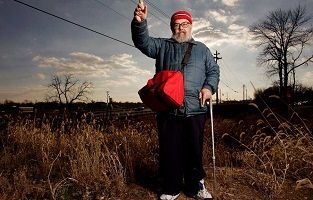Intense Stem Cell Therapy Shows Promise as MS Treatment

 Intense Stem Cell Therapy Shows Promise as MS Treatment
Intense Stem Cell Therapy Shows Promise as MS Treatment
A therapy known as HSCT performed well in a clinical trial, but experts caution the treatment might not be for everybody.
HSCT IndiaStem cells may be an important pathway for the successful treatment of multiple sclerosis, although it can be a long and painful road getting there.
A recent clinical trial bore this out
In the trial, people with multiple sclerosis (MS) using nonmyeloablative hematopoietic stem cell transplantation (HSCT) performed better than those on disease-modifying treatments (DMTs).
The randomized clinical trial is the first to compare HSCT to DMTs.
Researchers said a significant number of patients on HSCT treatment were able to slow disease progression, compared to those using DMTs.
Of the 103 participants, only three of those on HSCT saw disease progression compared to 34 of those on DMTs.
The research team concluded that HSCT slows progression better than DMT, but they added it is imperative to find the right type of patient to undergo what is a rigorous and sometimes dangerous therapy.
The study was led by Dr. Richard Burt, chief of immunotherapy and autoimmune diseases at the Northwestern Feinberg School of Medicine in Illinois.
“This important study is the first randomized trial of HSCT vs. DMT, and demonstrated that HSCT was superior to conventional DMT in stabilizing persons with relapsing MS with respect to relapses and progression and improving some functions,” said Dr. Barbara Giesser, professor of clinical neurology at the David Geffen School of Medicine at the University of California Los Angeles (UCLA) and clinical director of the UCLA MS program.
An intense treatment
HSCT uses chemotherapy to help cells “forget” they have MS.
In doing so, the immune system is stripped down to vulnerable levels. Patients must be hospitalized and treated with extreme care.
“HSCT is not one therapy but a range of therapies from a more mild type of chemo to a stronger type,” Bruce Bebo, PhD, executive vice president of research at the National Multiple Sclerosis Society, told Healthline. “Dr. Burt practices a more mild form of chemotherapy — more mild form of immunosuppression — so the risks are lower.”
Trial participants had relapsing MS with mild to moderate disabilities, ranging from 2 to 6 on the Expanded Disability Status Scale (EDSS).
“This study stands above the others — first controlled randomized autologous stem cell transplant. Burt and his team should be applauded for taking this on. It’s what everyone was asking for,” Bebo said.
“A lot of groups are experimenting with this type of treatment — case studies and evidence is accumulating for its positive benefit and accumulating info for the best patient and approach for success,” he added.
Bebo explained how difficult this study was to perform and how Burt and his team created an unbiased way to compare HSCT to DMTs, excluding ocrelizumab and alemtuzumab, which were not included.
Due to potential visible side effects with the chemo such as hair loss, a “blind reader” reviewed the results of the tests during the trial. This reader was off site and had no access to the participants.




